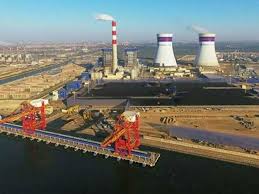China’s Companies Decline to Renegotiate on Power Purchase Agreement Terms

ISLAMABAD: A Pakistani delegation has traveled to Beijing aiming to secure an extension on loans for the China-Pakistan Economic Corridor (CPEC) and nuclear power plant projects, and to negotiate reduced interest rates.
Despite these efforts, China's three major power companies have firmly rejected the possibility of renegotiating the power purchase agreements (PPAs). Representatives from these companies asserted that any debt restructuring should be negotiated between Chinese banks and Pakistani authorities, without altering the agreed-upon terms of profit and capacity payments.
Pakistani Finance Minister Muhammad Aurangzeb is set to meet with Chinese officials to discuss extending the repayment period of the $17 billion loans, originally sourced from Chinese financial institutions to fund power plant installations. Pakistan's proposal includes extending the loan term by eight years, converting repayments from US dollars to Chinese yen, and reducing the interest rate.
If accepted, these changes could lower electricity costs in Pakistan by Rs 6-7 per unit, with a specific reduction of Rs 3-4 per unit from Chinese power plants alone. Additionally, Pakistan seeks to shift the interest calculation from the Secured Overnight Financing Rate (SOFR) to the Shanghai Interbank Offered Rate (SHIBOR), along with a reduction in interest rates above these benchmarks.
This year, Pakistan faces over $2 billion in energy sector debt repayments. The government is under significant pressure from industrialists and domestic consumers to renegotiate power prices to mitigate the financial strain.
However, representatives from the Sahiwal Power Plant, Port Qasim Power Plant, and China Hub Power Plant stated that revisions to the PPAs, established under the 2014 Energy Policy, are not feasible. These three plants collectively provide 3,960 MW of power.
The Chinese representative from Port Qasim Power Plant highlighted that a decade ago, Pakistan endured load shedding of 10 to 14 hours, and local investors were unwilling to invest in the energy sector. The 2014 Power Policy was a critical factor in attracting Chinese investment at that time.
The representatives identified high line losses, theft, and low recovery rates as the primary issues plaguing Pakistan's energy sector.
Meanwhile, former Interim Commerce Minister Gauhar Ijaz announced that the Federation of Pakistan Chambers of Commerce & Industry (FPCCI) will challenge the PPAs with Independent Power Producers (IPPs) in the Supreme Court. Ijaz tweeted that the court's intervention will be sought to address the untenable situation.




